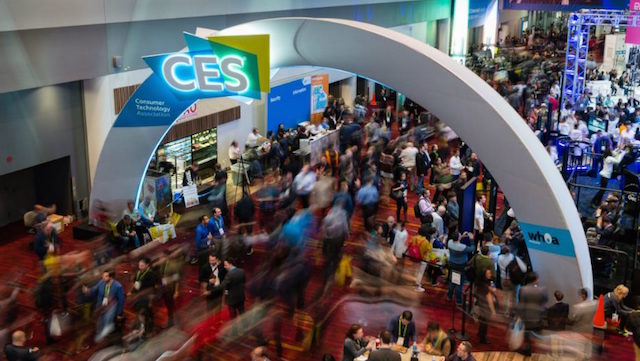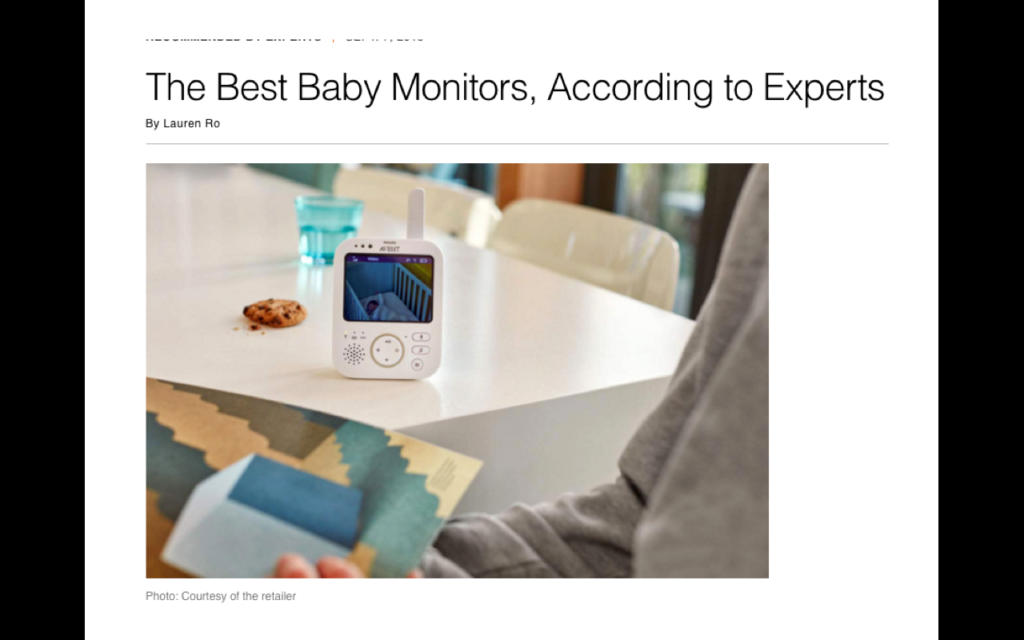 Op-Ed by Patricia Burke
Op-Ed by Patricia Burke
Thousands of vendors and consumers will be descending on Las Vegas this weekend for the massive Consumer Electronics Show (CES).[1] The industry is promoting the idea that customers are driving the demand for these new products, and that the world will be safer as the result of customer adoption. This year, the show is also promoting the theme of inclusion, particularly of women.
Customers are hungry for experience and want rich experiences online and off. We’ll look at AR and VR, 3D printing, personalized products, display signage, voice search, rich visual search and other inviting elements of the customer experience. Plus, unattended retail will debut to make its mark on the scene.
The Experience Customers Want is the Data You Need: Predictive behavior, machine learning, behavioral analysis. We’ll be dissecting customer patterns to discover more targeted, personalized approaches to identifying, acquiring and retaining customers. Customer acquisition is not cheap, but neither was targeting the whole world.
Efficiencies in Retail will Come from Tech: You’ll see smart-tagged garments, 5G retail experiences, Internet-of commerce-enabled things, smart contracts, and the ecosystem behind retail are all undergoing radical tech transformation.[2]
Riding on the momentum of the MeToo movement, there was a massive pushback against the 2018 CES show, which featured zero women keynote speakers. [3]
SOURCE: USA Today
Not a single woman landed one of the keynote addresses that headline the show, the second straight year these top spots were claimed by men. An online backlash has erupted, generating a hashtag (#CESSoMale) and a torrent of social media posts. Kristin Lemkau, chief marketing officer of JPMorgan Chase, who has spoken at CES herself, drew up her own list of 21 women headliners “in less time than it took to drink coffee.” HP’s global chief marketing officer, Antonio J. Lucio, tweeted: “All men should boycott @CES if women are not invited to speak! Insulting in this day and age.” [4]
“Women” in Tech and “Resilience”
The 2019 CES show will feature a focus on Women in Tech. The implication is that the addition of women to the SEC automatically denotes progress.
Forbes reports “A new focus area and major theme at CES 2019 will be resilience.”
“We define resilience as the place where technologies are going to help keep the world healthy, safe, warm, powered, fed and secure. And, this is kind of a new area that will be adjacent to our Smart Cities area,” added Chupka. “And we feel that this is so important topic because when we look at all the disasters that have been taking place throughout the world, we need to make sure that we have redundancies and then quite frankly, also look at ways tech can really help improve lives for everybody.”[5]
The additional focus on women in tech this year reflects a broad political movement.
An all-women panel at the 2018 show highlighted the contribution that women in tech bring to the table. Meredith Verdone, CMO, Bank of America wrote:
The panel dialogue was focused on how marketers – the decision-makers looking to connect brands with these powerful consumers – can engage the female community in new and effective ways.
Unanimously, we agreed that getting this right is going to require a combination of
- balancing gender composition in the marketing industry, so there is diverse input at every point,
- a deep understanding of the consumer and
- immediate action.
The conversation crystallized the kind of action required to get us where we need to be and why it’s important.[6]
The need for “deep understanding of the consumer” is the hallmark of a surveillance-capable data-driven economy, and the call for “immediate action” supports the rushed and urgent need to invest in new infrastructure to fuel economic growth, including the 5G telecommunications network to handle all of the data from all of the new devices promoted at the Consumer Electronics Show.
It’s the same paradigm that got us into trouble so many times before, clothed in a dress and designer shoes instead of a suit.
What Does Resilience Really Mean?
Resilience simply means redundant infrastructure.
We have been down this road before – of innovation running awry, with inadequate pre-market safety testing, with inadequate precaution, with lack of regulatory response to evidence of harm, with targeting of women consumers. Whether the targeting is done by men or by women, or to men or to women is not the issue. The issue is whether or not we are evolving or devolving and whether we continue to support a consumer-consumption driven society regardless of the impact on human health and the environment, or whether we begin to factor in human health and the environment.
 There is another narrative not present at the CES trade show, which is that instead of addressing all of the challenges being faced by humanity, the current technological revolution is unleashing another wave of planetary destruction, and human rights abuses.
There is another narrative not present at the CES trade show, which is that instead of addressing all of the challenges being faced by humanity, the current technological revolution is unleashing another wave of planetary destruction, and human rights abuses.
As reported by Fast Company: To the user, asking Alexa a question is the epitome of ease. To the people who mined the minerals, built the speaker, and trained the AI, it’s anything but. “Alexa, what time is it?”
“The mineral extraction, smelting, logistics, fiber optic cables, networking, AI training, energy, and e-waste . . . it’s an almost impossible task, requiring a mind-boggling scale,” Crawford says. “So we started by drawing multiple version on butcher’s paper, and it took dozens of sheets.”
From there, Joler and Crawford took a year to research every piece of the Echo’s supply chain, uncover the hidden human labor that most of us don’t think about when we query a voice assistant, and put it in historical, geological, and anthropological context.
It’s not just the miners: It’s also the humans operating the gigantic global shipping and manufacturing apparatus that brings each piece of the puzzle together, it’s the click-workers who label and sort vast data sets on which to train AI, and it’s you, the user, who is simultaneously acting as “a consumer, a resource, a worker, and a product,” as Crawford and Joler write in the essay. Through this lens, Echo’s complex processing becomes a story of human work and–more disturbingly–human exploitation. A child laborer in the mines of the Congo would need to work for 700,000 years without stopping to accumulate the kind of capital that Amazon CEO Jeff Bezos makes per day. “At every level contemporary technology is deeply rooted in and running on the exploitation of human bodies,” Crawford and Joler write in the essay.”
Smart Cities are Designed to Drive Consumption and Generate Data
Researcher Kristian Kloeckl has identified 5 critiques of the Smart City push:
The world’s city governments have made Smart City into the PR-term du jour, but is it the correct path to successful urban development?
[…]
“The current movement of the Smart City can be compared to what happened in the early part of the 20th century with the ‘modernist city’, where making everything new is seen as saving from all ailments,” he said.
5 critiques of the Smart City push:
- It creates a Control-oriented approach that gave access to a few people
- A promotion of a technocratic approach to city planning and government
- Creates a brittle and hackable urban systems
- Building a surveillance-state reliant on profiling
- A portrayal of algorithms as being free of biased
Kloeckl suggested a term called “Hybrid Cities”, which embrace technology as a tool for good, but also understands other variables and makes compromises for the greater good.
Pursuing Smart City initiatives can greatly improve the lives of a citizenry, but focussing on it as the cure-all for a city’s ills is not only naive, it can create more problems. [7]
What Does Being a Woman Mean?
The idea that simply adding women to tech will resolve any of the issues facing humanity is not only naïve, it is dangerous.
Like the agrochemical companies that overran India with GMO rice and petro-chemicals, India and other nations are now being overrun by the telecommunications and utility industries.
SOURCE: Films For Action
In Nature Ethics: An Ecofeminist Perspective, the late Marti Kheel “argues that in directing their moral allegiance to abstract constructs (e.g. species, the ecosystem, or the transpersonal Self) these influential nature theorists represent a masculinist orientation that devalues concern for individual animals.”[8]
Including women as keynote speakers at the Consumer Electronics Show is designed to increase receptivity and decrease resistance by women to marketing of consumer products.
The devaluing identified by Marti Kheel includes those marginalize individuals developing environmental illnesses as the result of exposure to wireless devices and infrastructure. The technological revolution is a bullying paradigm.
Are We Smart Enough to Recognize Wasteful Energy Consumption and Electrosmog?
An example of a new wireless strategy for consumer convenience is a device that can be installed on a legacy air conditioner so that it can be controlled remotely by the users cellphone.
One advantage of the using the smartphone app is that you can create a geofence around your home and adjust the radius from 100m to 800m. This lets you automatically turn the aircon on and off as you come and go. In busy households, you can even automatically kill the air when the last person leaves the house.
This upside of this is that it stops you making the expensive mistake of accidentally leaving the aircon running all day while no-one is home. The downside is that enabling geofencing means the app constantly monitors your GPS location which, as with all such services, takes its toll on your smartphone’s battery life during the day.
Given that an air conditioner can be managed with a timer, are we moving forwards or backwards? Should your AC control provide redundant data about your car’s location?
This ubiquitous and incessant signaling of devices is exponentially increasing the amount of data generated. It necessitates new towers and antennas blanketing communities and all biological cells with microwave radiofrequencies.
If you don’t want antennas next to your home and business, whether or not you are a woman, it’s time to stop supporting the idea that you need to control your AC from your phone while in your car.
And if we are going to improve life for everybody, as the women of the CES state that they intend to do, we do not need federal regulations that prohibit communities from advocating for human health and the environment. And we need to give the EHS community and independent non-industry-funded EMF/RF scientists and researchers a seat at the table previously occupied by tobacco scientists.
Let’s get real.
Notes:
[1] Since 1967, the Consumer Electronics Show®, CES, has been the showcase of consumer technology innovation. Over the years, it has become the largest and most influential technology event on the planet. CES showcases more than 4,500 exhibiting companies, including manufacturers, developers and suppliers of consumer technology hardware, content, technology delivery systems and more; a conference program with more than 250 conference sessions and more than 180K attendees from 150 countries.
And because it is owned and produced by the Consumer Technology Association (CTA)™ — the technology trade association representing the $292 billion U.S. consumer technology industry — it attracts the world’s business leaders and pioneering thinkers to a forum where the industry’s most relevant issues are addressed With 11 official venues, CES spans more than 2.5 million net square feet of exhibit space and features 24 product categories and more than 20 Marketplaces.
https://www.ces.tech/About-CES.aspx
[4] https://www.usatoday.com/story/tech/2018/01/05/ces-women-diversity-keynote-speakers/1005021001/
[7] https://sg.news.yahoo.com/5-critiques-smart-city-push-084824391.html
[8] http://martikheel.com/nature-ethics.html
Patricia Burke works with activists across the country and internationally calling for new biologically-based microwave radio frequency exposure limits. She is based in Massachusetts and can be reached at stopsmartmetersMASS@gmail.com.






Be the first to comment on "Women and the Tech Industry: The Consumer Electronics Show"